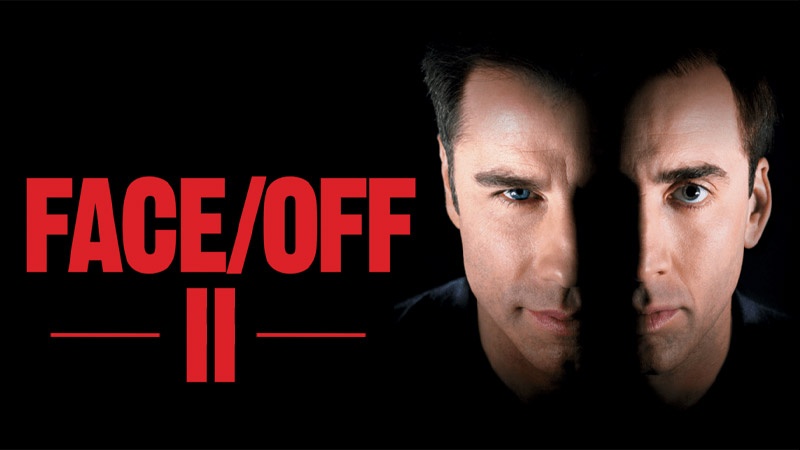Director: Quentin Tarantino
IMDB Rating: 8.9
Starring: John Travolta, Uma Thurman, Samuel L. Jackson, Bruce Willis, Amanda Plummer, Tim Roth, Ving Rhames
Duration: 2 hours 34 minutes
Movie Synopsis
Pulp Fiction weaves together multiple intertwined stories, each unfolding in its own time frame, featuring characters seemingly unrelated to one another.
Two hitmen working for the mafia, two small-time robbers who seem to care for each other, and a boxer still fighting in the ring – these characters’ lives are at the center of the narrative.
The mafia boss pays the boxer to lose a match, but the boxer breaks the deal and wins the fight. As a result, the mafia boss sends hitmen after him. Meanwhile, the duo of robbers attempts to rob a restaurant where the hitmen are having breakfast. Thus, three distinct stories find a way to intersect, forming the broader framework of the narrative.
To those who have not yet seen this film, here are my final thoughts:
Pulp Fiction is not an adventure film; it’s a complex narrative that unfolds slowly. The movie is dialogue-heavy, and many of the conversations may seem strange or unnecessary at first glance. For example, without grasping the film’s logic, you won’t understand why two people with a dead man in their car are arguing over a towel.
Without giving away spoilers, this is as much as I can tell you about the film. Now, let’s dive into the details.
The Variability of Power and Authority Over Time and Circumstances in Pulp Fiction
In Pulp Fiction, seemingly unrelated and disjointed scenes and dialogues actually convey profound messages. They illustrate the concept of power and authority shifting with changing times and circumstances.
For example, the sudden vulnerability of the mighty mafia boss, Marsellus, and a powerful boxer capable of killing his opponent in the ring, when they fall into the hands of two sexual predators. Circumstances swiftly strip them of their authority.
The sexual predators who seize power and authority in a moment find themselves unable to maintain their positions. Eventually, one of them dies, and the other gets injured, causing power to change hands once more.
Two robbers, armed and ready to rob a restaurant, intimidate everyone present. However, power and authority shift abruptly again, and the very words they speak during the heist are turned against them.

Throughout the film, it’s not just power that changes hands. Even Mia, who exudes beauty and allure, suddenly finds herself in a helpless position. In one scene, we witness her being treated as nothing more than an object.
The changes we witness in the film are all meticulously crafted scenes to convey a message. They emphasize the constant fluctuation of power and authority among individuals and even nations. We’ve seen this theme explored multiple times in shows like Game of Thrones, where characters representing power experience drastic falls from grace. The same principle applies to countries in history – many once-mighty nations now exist only in the pages of history books. This was one of the key themes explored in Pulp Fiction: the variability of power and authority.
This brings to mind the saying known as the “Theory of Life”:
When flood comes the fish eat ants but when water dries the ants eat fish. Life gives chance to everyone just wait for your turn.
Chaos, Disorder, or Coincidences
In Pulp Fiction, it often seems like everything has spiraled out of control, or perhaps even further. Nothing unfolds as the characters have meticulously planned.
For instance, when Pumpkin and Honey Bunny decide to rob the restaurant with the pumpkin pie and cute bunny theme, they believe no one there will try to stop them. Neither the restaurant owner, nor the waitstaff, nor the customers. No one. However, what they fail to account for is the presence of two fearless hitmen.
In this scene, the hitmen believe that everything is under their control. But suddenly, someone hiding in the bathroom emerges and starts shooting at them.
Butch, who goes home to get his father’s watch, decides to make toast, assuming that nobody is at home. It’s a coincidence that he stumbles upon the gun Vincent, a mafia member, left in the kitchen. It’s as if nothing is truly under anyone’s control.

READ MORE: Pulp Fiction Uncovered: 24 Surprising Facts You Didn’t Know!
When Butch encounters Marsellus, who wants him dead, at a traffic light, he accidentally enters a store while trying to escape, and everything that happens there is purely coincidental. Vincent, while in the car, appears to accidentally shoot a man as the car jolts. (Note: I disagree with this; when you slow down the scene, it’s clear that he intentionally moves his finger to the trigger, pointing the muzzle at the man). Almost all the events that unfold in the film seem to do so haphazardly. This is a crucial detail emphasized in Pulp Fiction.
Did Marsellus Sell His Soul to the Devil?
You might wonder where this question came from, but there are a few details placed in the film that make it seem plausible.
Vincent inputs the code to check the contents of Marsellus’ briefcase, and the code is “666.” These are the numbers associated with the Devil in the Book of Revelation in the New Testament.
Marsellus remains a mystery for a significant portion of the film. We never see his face, and his conversations don’t reveal his visage. Marsellus speaks rather rudely in his normal interactions. However, when bribing the former boxer, you can witness how eloquent and courteous he can be. He can speak differently when trying to manipulate someone. Furthermore, he touches on crucial points to convince Butch. It’s as if he knows the other person’s vulnerabilities and speaks accordingly. He says, “You’re a talented guy, but your days are numbered… take the money and live comfortably.” Marsellus could have directly convinced him with money, but he first attempts to gain psychological control. He shows the money later. It’s a diabolical intelligence at play.

In this scene, he utters a remarkable sentence: “23:33.” His understanding of the boxer’s potential for pride on fight night is eerily astute.
What’s even more intriguing is his final sentence. If you pay attention to his tone, it seems like he’s speaking from personal experience. “Pride hurts. It never helps.” You can consider this final sentence in the context of the biblical story of Satan and Adam, found in the sacred texts of the three major religions. Satan is condemned to suffer because of his pride.
It’s also essential to emphasize that Marsellus serves as the common thread tying all the stories together. All the narratives converge around him, as if he possesses a devilish quality to complicate and steer events as he desires.
The band-aid on his neck in this scene might symbolize the hole left when the Devil took his soul.
In Pulp Fiction, the subtle yet intriguing details surrounding Marsellus Wallace add a layer of complexity that keeps you questioning his role and the enigmatic forces at play in this cinematic classic.
John Travolta movies Pulp Fiction quentin tarantino reviews Samuel L. Jackson Uma Thurman
Last modified: November 3, 2023





















